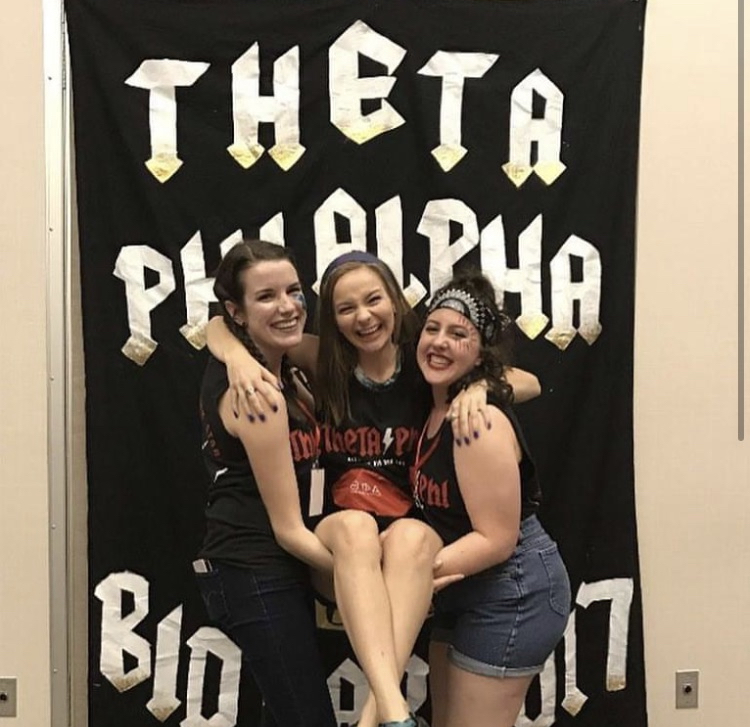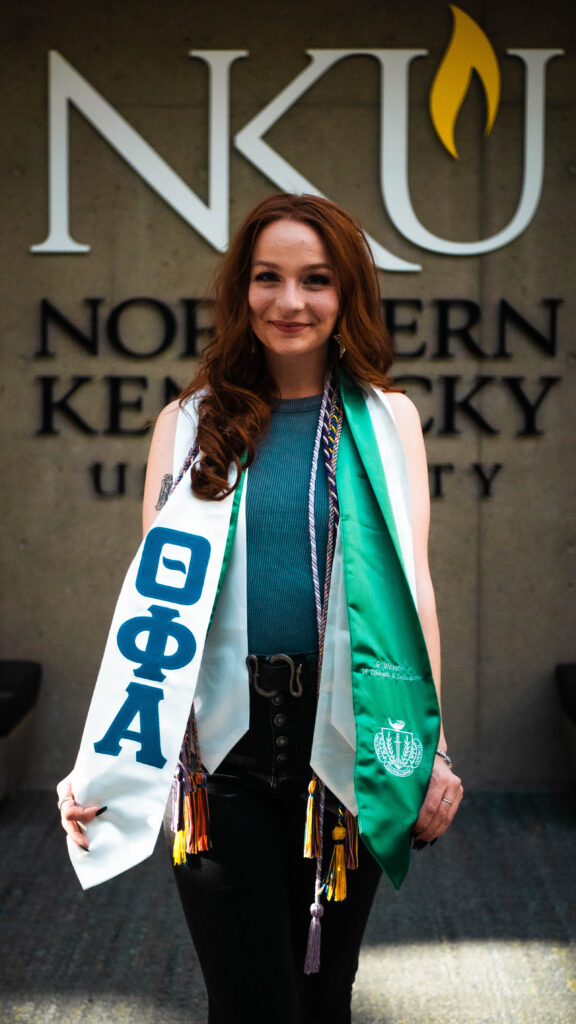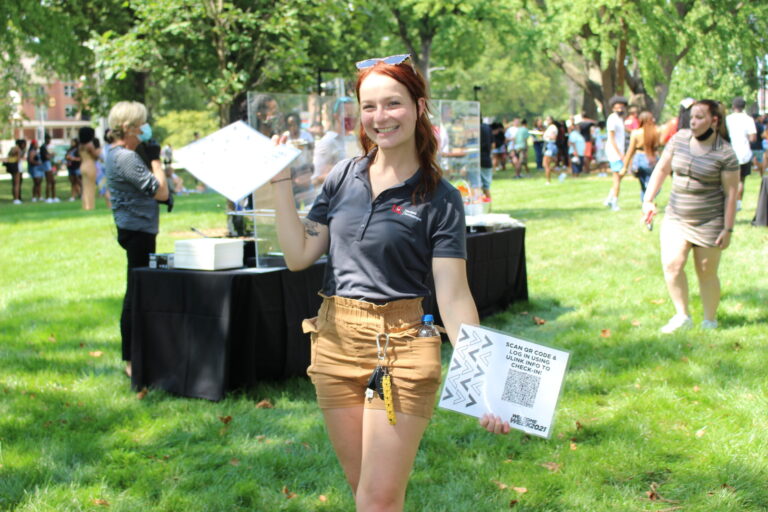I had one goal when I started college, and that was to get my degree in musical theatre, move to New York City and magically make it big. So, joining a sorority was not on the agenda at age 18.
Several women in my theatre department encouraged me to go through the Panhellenic primary recruitment process. I did, and I ran home to some of my role models and favorite humans when I chose to join Theta Phi Alpha.
Addressing Issues in the Panhellenic Community
Originally, I was not incredibly involved in my chapter as being a theatre major took up a lot of my time. I would do several shows a semester and sisters would also come out and make me feel supported and loved. I didn’t get involved until one day when our chapter president asked if I would be the second chapter representative to go to a fraternal meeting with her. The meeting was hosted by the LGBTQ Programs and Services office on campus, and it was a crash course on how we as members of fraternity and sorority life could educate ourselves to be more inclusive of our queer brothers, sisters and siblings. I sat there and I could not comprehend how this room of leaders had no idea of the easy things they could do to make members feel included in their organizations because as a queer person I felt overwhelmingly accepted in my chapter.

Doing simple things such as welcoming sister’s girlfriends to chapter events, asking members’ pronouns and respecting them, educating themselves on the LGBTQ+ community and listening to their sister’s lived experiences are simple ways to make queer people feel welcome in a world that they are not stereotypically in. These are things my chapter already did with a large portion of members identifying as queer, but not everyone’s experience was like mine. Seeing the disconnect between my two communities something inside me clicked; I had to make it better.
This led to me running for a position on the College Panhellenic Association that semester, with no leadership experience at all. All I knew is that I wanted to make this fraternity and sorority life community at Northern Kentucky University (NKU) the family we always preached it was.
Naturally, as an overeager unqualified individual, the position went to someone else. But that didn’t stop the drive I had to fix things. It turns out, you can make change in the community without holding a leadership role.
I got more involved on campus and learned about myself, my leadership skills and how to create the change at my university I wanted to see. I joined a leadership development organization, took over planning my sorority’s philanthropy events, and attended as many campus events as possible.
The next fall I became vice president of diversity, equity and inclusion for my College Panhellenic. Getting to serve NKU’s Panhellenic community during 2020 was one of the highlights of my collegiate career as I was able to work with individuals to lay the foundation for a fraternity and sorority life community that was far more inclusive than when I initiated.
Supporting the Fraternal Community
My primary goal in holding a position in my College Panhellenic was to educate the fraternal community on the LGBTQ+ community and make our chapters more welcoming to queer individuals. I worked alongside my Panhellenic president to focus on this during our bylaw revision process. We created a diversity, equity and inclusion clause that we proposed to chapters during our amendment period. If this bylaw passed it would require each chapter to host one training related to diversity, equity and inclusion from an outside speaker, complete bystander intervention training annually, and require new members to complete ally zone training before they initiate into their organization. Once these bylaws were passed, I felt in control, like I had the power to make the change I wanted to see in the world. And then the COVID-19 pandemic hit and altered my grand plans.
It was holding this position during the resurgence of the Black Lives Matter movement following the deaths of George Floyd and Breonna Taylor I knew I could not passively hold this role. I had a responsibility to listen to my community and to challenge the very foundation on which our organizations were built, not just for queer students, but for every student who wants to experience the joys and benefits fraternal life has to offer.
When my little was arrested for peacefully protesting in downtown Cincinnati, I posted on my Snapchat asking if anyone would want to donate to help with their bail funds. With an overwhelming response, this quickly turned into an organization that raised bail funds for NKU affiliates and protesting supplies. Within a week our newfound NKU Freedom Fund had raised over $7,000 in the name of the Black Lives Matter movement.
Administrators in my school advised me to hold onto the money in case protests and arrests spiked, but they did not in our area. I had countless meetings with our Director of Student Engagement and the Director of African American Student Initiatives on how we could use this money to pour into the Black community at NKU. This turned into a fund that Black student organizations could apply for to enrich their organization’s leadership development.
The coordination of fundraising, marketing, and communicating with university administration opened my eyes to the impact that higher education can have, not only on an individual like me who found their niche in it, but also for a college community. This led me to pursue my current career in student affairs.
A Career Focus
I now serve as the Graduate Assistant for Fraternity and Sorority Life at the University of Louisville (UofL), where I advise the College Panhellenic Association while I pursue my master’s in education focusing on college student personnel. My goal in my time in this program is to find a functional area within student affairs where I can help spark conversations about diversity, equity and inclusion. In working with the College Panhellenic executive board at UofL I have been reaffirmed that the work I have started when I was a collegian will always be necessary and now, I get to act as an advisor to young women who want to make a difference in their sororities, fraternal community and college campus.

